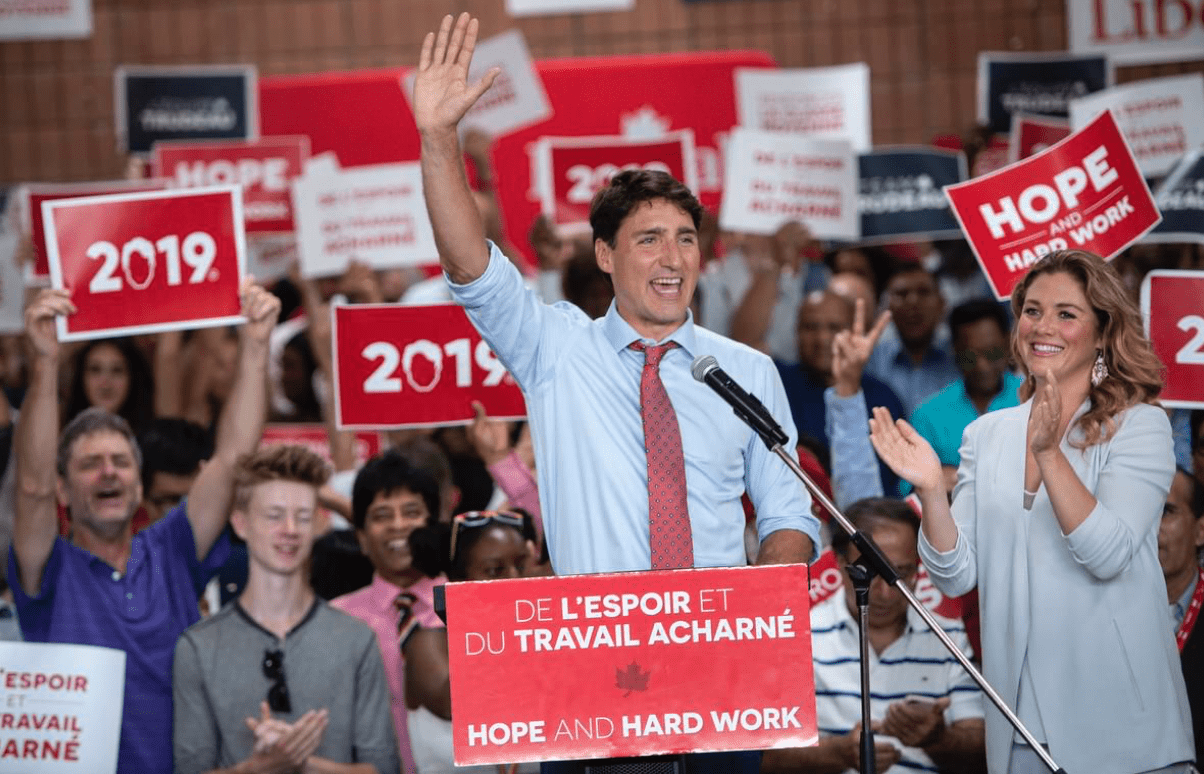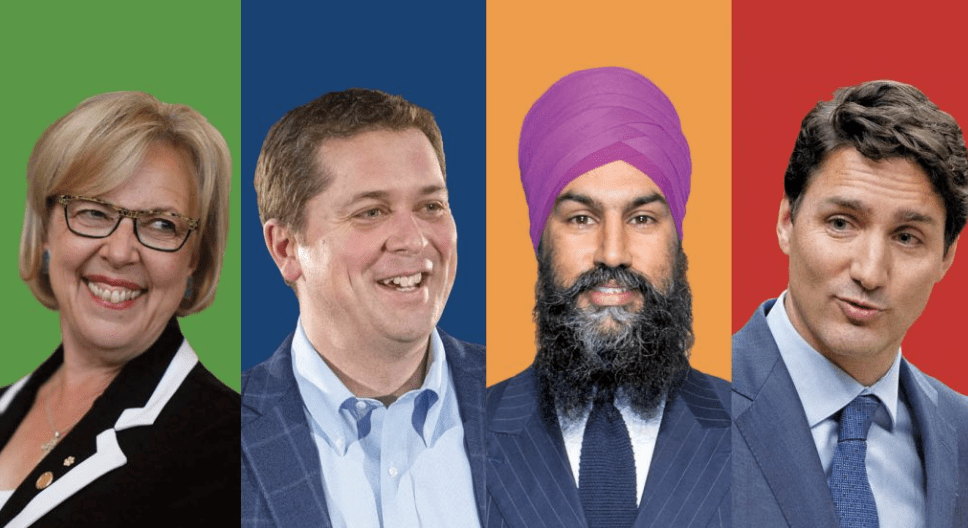It would be foolish for anyone, politician or pundit alike, to underestimate the campaign skills of Justin Trudeau in the upcoming election.
He remains the country's most formidable political warrior on offer, even with the shackles of SNC firmly bound upon him now. Though, with this current crop of prime ministerial contenders, perhaps the compliment isn't saying as much as it otherwise would have in previous eras of Canadian history.
Still, this accolade on Trudeau's behalf may seem a bit much for some observers.
Especially as just four years ago, Justin Trudeau was the brash and untested leader of a third party caucus in the corner of the House of Commons.
But now though, Justin is the veteran of the party leaders (notwithstanding Elizabeth May and her caucus of two). Of course, at the mere age of 47, Trudeau is still quite young by historical standards. But against his two fresh-faced opponents, Andrew Scheer and Jagmeet Singh, Trudeau is practically the wizened elder of Canadian politics. After all, both Scheer and Singh are only just barely 40 years of age.
It is not so much Justin Trudeau's age which is to his advantage over Scheer and Singh, but rather, his electoral experience over both federal party leaders.
Take for instance the fact that neither Conservative nor NDP leader have ever managed a national cross-country election campaign something Trudeau did four years ago with great success.
It's one of Trudeau's most important assets moving forward, which must not be forgotten by his political rivals if they are to hope to defeat him.
And hope they must.
For what's often foolishly overlooked is that Justin Trudeau is an undefeated political champion. And he has been ever since he began his political career.
In 2007, Trudeau sought the Liberal nomination in the Quebec riding of Papineau. He faced competing bids from Mary Deros, a city councillor, and Basilio Giordano, a local newspaper publisher, but nonetheless secured the candidacy.
Then, in the 2008 election, he defeated incumbent Vivian Barbot in what was a Bloc Quebecois stronghold up until that point to become Member of Parliament for the first time.
And in the 2011 election, Trudeau won his re-election, even as the Liberals were reduced to their worst showing in the party's history.
The following year, Justin Trudeau revitalized the demoralized spirit of his party by defeating Conservative senator Patrick Brazeau in a much publicized boxing match and fundraiser for cancer research. The victory helped propel Trudeau to contest the leadership of the Liberal Party in 2013, again, something he won with great ease.
Finally, in his first general election as party leader in 2015, Justin Trudeau made history by propelling his third-party Liberals into government with a majority mandate.
It's certainly an impressive record once reviewed in its totality.
And while four years of governing has scraped off much of the "sunny" from his "sunny ways", Trudeau remains the man to beat.
Some critics will no doubt refute this assertion.
Many will cite Trudeau's proneness for foolish gaffe-making as completely undermining of his political effectiveness.
Yet Trudeau's penchant for verbal blunders is hardly the political kryptonite his opponents have made it out to be.
Gaffes hardly ever are.
One need only observe Joe Biden's success in the United States. He remains ahead in all the polls and is the reigning front-runner for the Democratic nomination, even with his own countless gaffes.
Furthermore, as much as Trudeau's gaffes have may have hindered him, his ability to speak off-script and with spontaneity has proven one of his greatest strengths. It's for that very reason that Trudeau conducts his many town-hall speaking events every time his government needs a wave of positive press coverage.
Critics of Justin Trudeau should really get over their life long dismissal of the man. He may be the privileged and handsome son of a former prime minister, but he is also more than the spoiled and pampered dauphin that they make him out to be. Well, at least on his good days. And judging by his long history of electoral triumphs, he's had quite a few good ones.
As the election campaign draws ever near, Scheer and Singh would do well to remember this. Underestimating Trudeau is a luxury neither leader can afford.
Photo Credit: CBC News








